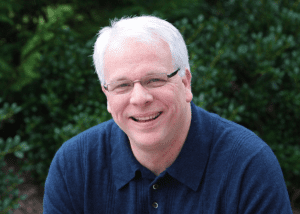Most of us believe forgiving someone is an easy thing. Forgiveness usually goes something like this: someone does something wrong and they feel bad. The offending party then goes to the person they offended and apologizes. The person who was wounded is supposed say, “That’s OK. I forgive you.” There you have it. Everything is forgiven.
Now, things are supposed to go back to the way they were. Both the offended and the offender are supposed to go back to acting the way they did before the mistake was made.
But it doesn’t work that way does it? We know we’re supposed to forgive the person who has hurt us and we try to say all of the right words, but we still find ourselves with a mixture of emotions. We feel anger. We feel hurt and we find ourselves still thinking about the event. As much as we try to put it out of minds, we find ourselves thinking about it all of time.
Ever been here before? Too many times we end up condemning ourselves for not having a “forgiving spirit.”
This really isn’t the problem. The problem is most of don’t understand forgiveness.
To begin with, most of us don’t want forgiveness at all. We want justice, or at least our version of justice. We want the person who hurt us to hurt as badly as we hurt. If possible, we want to inflict the punitive pain ourselves.
But you can never remove pain from our lives by causing pain in someone else’s life. Forgiveness isn’t about the other person at all.
Forgiveness is about us.
To begin with, forgiveness begins by releasing the person from the expectation they can fix what they did in your life. They can’t. Let me give you an example. I’ve been married for almost 38 years. That’s more than enough time for me to say something stupid. So, let’s say I do (hypothetically speaking) say something to hurt Jeannie’s feelings. When I realize what I’ve done, I apologize profusely. I say “I’m sorry” a thousand times, a million times. Anyway, she believes me. She knows I’m an idiot sometimes and she also knows I would never do anything to hurt her. She forgives me. Well, she forgives me as much as she can.
But what about the pain in Jeannie’s heart? What I said hurt Jeannie and she said she had forgiven me, but she’s still hurt. What does she do with the pain?
Here’s the one thing I know. I can’t do anything about the pain Jeannie is feeling with. Once she’s hurt, the pain is hers to deal with. As much as I would want to, I can’t help her with her pain. She’s going to have to deal with it all on her own.
I’m not sure many of us understand that. We think the person who hurt us is responsible for making our pain go away. They’re not. They can’t. Once we have the pain, the pain is ours to deal with.
So, how do you do that?
First, after you release the person from the expectation they can fix what they did. We begin by taking responsibility for our own pain. We don’t expect anyone else to do what only we can do.
Then, we take our pain to Jesus in prayer. I’m not being overly spiritual here. I’m being very serious. In our prayer time with Jesus, this is something we talk about.
We tell Jesus about it. We tell him this is what happened, this is what was said and this is why it hurt. In the conversation, Jesus will bring healing. Remember, Jesus died for sinners – even those who sin against us.
Now, in the conversation don’t be surprised if Jesus asks why the comment hurt you. What was it about the person or what the person did that hurt? Why were you vulnerable to that? Did the comment, even if hurtful, reveal a truth in your life that needs to be dealt with. As Christ pours Himself into your life, you’ll find not only a complete healing, but the ability (and willingness) to love the person who hurt you.
Don’t be surprised if forgiveness takes a little while. Most of want forgiveness to like a staircase. We want to deal with the problem, then take a step up and move on.
But forgiveness isn’t like that. Forgiveness is more like a spiral staircase rather than a straight staircase. You’re making progress, you keep dealing with the forgiveness at deeper and deeper levels. The problem is you feel like you’re walking in circles. You’re not, but it feels that way.
Forgiveness, authentic forgiveness is multi-layered. It’s just no one tells you that. We end up feeling bad because, “I thought I had forgiven them, but I keep thinking about it all of the time.”
You have forgiven them, but not at this level. For forgiveness to be complete, you have to forgive every level of the hurt and that takes while.
One more warning, forgiveness isn’t the same as reconciliation. Just because you’ve forgiven someone doesn’t mean you have to live in relationship with them. There are a number of instances where this would be ill advised or even dangerous. For instance, if a person has been abused by a relative, they can forgive this person but not have a continuing relationship with them. Releasing the person from the expectation they can’t fix what they did within you isn’t the same thing as trusting them to never hurt you again.
This one more miracle of forgiveness. Jesus doesn’t just heal the broken relationship. He heals the broken people in the relationship too.












